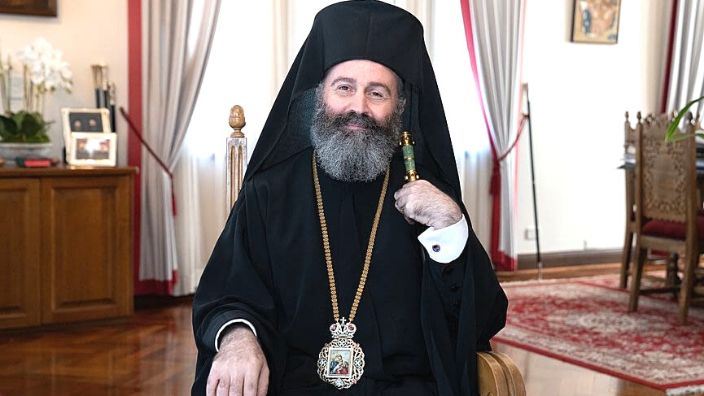His Eminence Archbishop Makarios of Australia has issued a special message to mark International Greek Language Day today.
In his message, Archbishop Makarios stresses the importance of the Greek language for Hellenism and as a “suitable vehicle for the spread of Christian teachings.”
Full Message in English:
For every person on earth, the language they speak is the root of their culture and the backbone of their historical path.
As Greeks, we rightly boast that the tree of our nation is tall and majestic, with dense and beautiful foliage and rich fruits. This is undoubtedly connected with the greatness of the Greek language, which, spoken continuously for more than four thousand years, has been a life-giving force of Hellenism and at the same time, a suitable vehicle for the spread of Christian teaching in the universe. Admittedly, the Greek language was the shoot that “grafted” the European and world culture, while it is worth mentioning the strong imprint it has also left in the field of science, as we can all see during the current pandemic and the extensive use of terms of Greek origin to describe it.
Properly and wisely, then, International Greek Language Day was established and we are celebrating it today for the fifth consecutive year. It was also rightly and wisely chosen to coincide with the Day of Remembrance of our national poet, Dionysios Solomos, so that every time we can remember the famous phrase from his work “Dialogue”: “Do I have anything else in mind to give me freedom and language?”

At a time when we enjoy freedom as a self-evident good and are blessed to live in conditions that do not compare to the conditions under which the pages of “Dialogue” were written, our responsibility to preserve and promote the Greek language is undoubtedly maximised.
I want to assure you that everyone in the Holy Archdiocese of Australia is aware of this heavy responsibility. A responsibility with a double direction, both to our beloved homeland and our glorious ancestors, as well as to our proud Greek community in Australia – i.e. the older generations of Greek immigrants and especially the Australian-born Greek children.
In a sacrificial spirit, all those who serve in our dynamic educational institutions and in the catechism schools of our local parishes work daily for the care of the majestic tree of our nation, so that its root and trunk remain strong and prosperous, so the branches continue to spread far in the Antipodes and so its precious fruits can be offered in abundance to Australian society and to all of humanity.
Those who have devoted themselves to this blessed work are to be commended, as well as those who take care to keep the language of our ancestors alive even within their family homes. I take this opportunity today to express to them the deep gratitude of our local Church and, I am sure, the gratitude of our compatriots everywhere!

